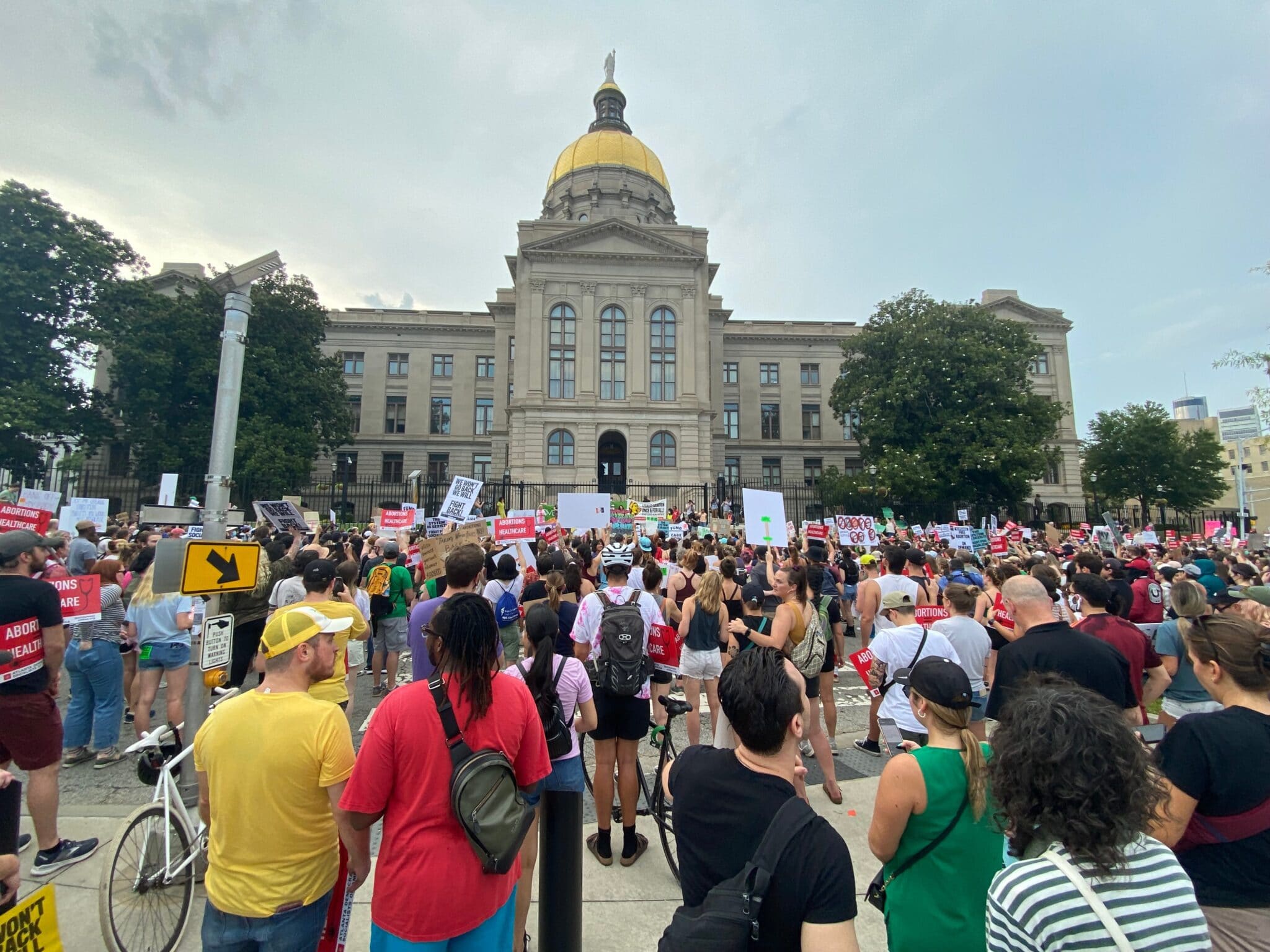Both sides in Georgia’s abortion fight have laid out new legal arguments in the wake of last month’s U.S. Supreme Court ruling overturning the 1973 Roe v. Wade decision that legalized the procedure.
The case started when the General Assembly passed legislation in 2019 banning most abortions in Georgia after a fetal heartbeat could be detected – usually around six weeks of pregnancy.
A U.S. District Court blocked the law from taking effect after a group of reproductive care providers – led by SisterSong – successfully sued in 2020.
The state of Georgia appealed the district court’s decision to the 11th U.S. Circuit Court of Appeals. Last fall, the appellate court put a decision on Georgia’s law on hold until a definitive Supreme Court ruling on abortion.
When the Supreme Court overturned Roe v. Wade – stating that there is no constitutional right to abortion in America – the appellate court requested updated legal briefs from both sides in the Georgia case.
In a brief filed late last week, reproductive rights advocates who oppose the law appear to say they will no longer pursue a constitutional right to abortion as a legal path to block Georgia’s abortion law. Instead, both sides’ briefs focused on the broad definition of a “person” found in Georgia’s abortion law.
Part of the Georgia abortion law redefines a “natural person” to include “an unborn child,” which is now emerging as a key legal debate.
The brief from SisterSong and other reproductive care providers in Georgia argues that the broad definition of a person found in the Georgia abortion law – read in concert with other parts of Georgia law – would result in a chilling effect on medical care for pregnant women in Georgia.
They say the broad definition could even lead to prosecution of medical providers for providing “critical medical care that pregnant patients need.”
The chilling effect on physicians would cast a shadow over patients’ care – specifically the “fundamental right to procreate,” argue the plaintiffs. That would infringe on people’s right to make childbearing decisions.
“By threatening reproductive health-care providers with criminal penalties for providing routine obstetrical and gynecological care, such as amniocentesis and miscarriage care, and thus chilling and delaying needed diagnostic and treatment … the Personhood Definition forces those who choose to procreate to incur needless medical risk,” the plaintiffs said.
In contrast, the state contends that the “natural person” definition in the abortion law is not unconstitutionally vague.
The state also argues that even if the “natural person” definition found in Georgia’s abortion law is unconstitutionally vague, that would leave the rest of the Georgia abortion law intact.
This story is available through a news partnership with Capitol Beat News Service, a project of the Georgia Press Educational Foundation.
Get More Context: With the barrage of information coming through your social media feeds and phone notifications, it can be hard to get a clear picture of what’s happening in your community and throughout the state. Click here to see what else is happening in The Peach State and get your news in context instead of relying on social media feeds and notifications for your news. We’ll help you stay informed.
Disclosure: This article may contain affiliate links, meaning we could earn a commission if you make a purchase through these links.






